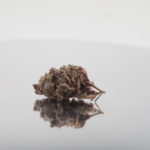A drug is a chemical substance that acts on the brain and nervous system, changing a person’s mood, emotion or state of consciousness. Drugs are often classified by the effect they have.
Stimulants, such as cocaine, make people feel full of energy. Depressants (or sedatives), such as heroin, make people feel relaxed. Hallucinogens, such as LSD, make people see, feel or hear things that are not real. Drug or substance misuse is when a person regularly takes one or more drugs to change their mood, emotion or state of consciousness.
We know how to reduce premature deaths from co-morbid mental health and substance use problems, so why aren’t we doing anything about it?

Ian Hamilton looks at a Swedish 42-year follow-up study, which looks at the impact that psychiatric comorbidity can have on premature death in a cohort of patients with substance use disorders.
[read the full story...]









